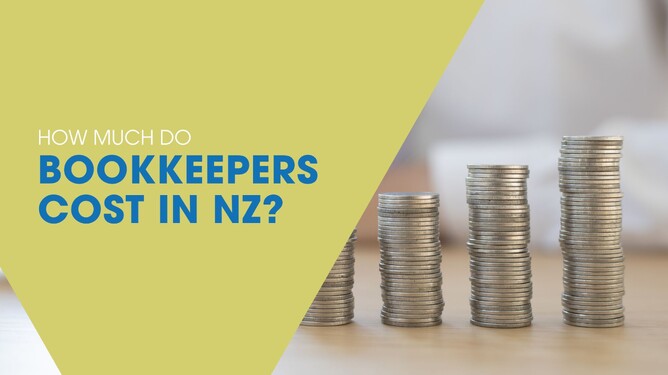If you’re a business owner in New Zealand, you’ve probably wondered: how much should I expect to pay for a bookkeeper? The truth is, it varies, depending on your business’s size, complexity, the services you need, and the bookkeeper’s experience.
Here’s a breakdown to help you understand what to expect and how to get the best value.
Why Bookkeepers Are Worth It
Small businesses, sole traders, and startups often feel overwhelmed by bookkeeping, finance, tax, and accounting. Especially when you’re first starting out in business. There’s a lot you often don’t know.
A good bookkeeper can take that stress away, giving you time to concentrate on growing your business. The value becomes even more apparent over time: monthly reports, GST returns, payroll, and end-of-year income tax filings all show how much easier managing finances can be with professional help.
Generally speaking, when I take on a new client, I will charge per hour to assess accounts and tidy up transactions. However, bookkeeping tasks are often monthly, quarterly, or annually, which makes it easier to estimate the work required and for you to budget for this regular expense. Some bookkeepers charge a flat fee, and others, like virtual bookkeepers, work on a subscription-based service.
How Bookkeepers Charge
There are three main ways bookkeepers charge for their services:
#1. Hourly Billing
You pay a set hourly rate for the time the bookkeeper spends on your admin. For standard bookkeeping services (such as accounts receivable and payable, bank reconcilations, end-of-year tax returns, GST, payroll, etc.), you can expect to pay between $70-$80 an hour. For high-end services, such as software training, business strategy and advice, and consulting, you can expect to pay $101-$150 per hour.
N.B. The above rates are based on information issued by the Institute of Certified NZ Bookkeepers. Prices vary from service to service.
The benefit of paying an hourly rate is that you only pay for the time the bookkeeper spends doing your books. The con, however, is that it can be difficult to budget for an hourly rate. If the project takes longer than you expected or goes outside the scope, you might be surprised by the final bill.
#2. Fixed Price, Flat Fee’s or Subscription
This is where the bookkeeper provides a price up front for their services, and you agree and pay for the service before work begins. I’ve seen packages from $130 per month for do-it-yourself bookkeeping (with support) to premium packages for $1500 per month.
The benefits of working with a set price are that there are clear expectations set for both parties before work begins, meaning you get what you pay for in your package. It’s also a more predictable cost for your business, meaning you can budget for it each month. However, unexpected issues could derail this, and there is an opportunity here for scope creep.
Factors That Influence Cost
The cost for bookkeeping services can vary depending on various factors. Your business’s size, the complexity of your needs, the volume of work required, the technology you use, and specific services your require, etc. These can all affect price. Below are some of the key factors that can influence cost.
Experience and expertise: Highly experienced bookkeepers, or those offering consulting services, charge more.
Business complexity: More transactions or complex financial structures take more time.
Scope of services: Basic transaction processing costs less than payroll management, GST returns, or cash flow analysis.
Location: Rates may be higher in cities or for certain industries.
Frequency of service: One-off clean-ups can be pricier than ongoing monthly bookkeeping
How to Get an Accurate Quote
To get an accurate quote from a bookkeeper, you need to provide detailed information about your specific needs and requirements. This can include any work outstanding and your current situation with your accountant or bookkeeper. To get you an accurate quote, you need to:
Determine your needs: What services does your business need?
Research options: Look for bookkeepers experienced in your industry and familiar with software like Xero, MYOB, or QuickBooks.
Request a personalised quote: Provide details about your business so the bookkeeper can tailor pricing to your requirements.
The good news is that with modern technology, bookkeeping is more efficient and accurate than ever. Manual tasks that previously took a lot longer are much faster, and there's less room for human error. All of which helps to save you money.
Every business is different! Reach out today for a tailored quote based on your unique needs.


